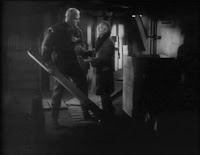Yep. It’s that time again.
I figured I was about do to talk abut spelling, as I due every sex months or so. It’s on of those things that needs to get hammered home again ant again, because no mater how many tines I say it, their is still this huge grope of people who incest that smelling doesn’t really effect how an editor vies you’re writing. Either that or they fill back on the hole “language evolves” defense.
Now, sum of you may bee giggling or filling a bite smug rite about now. After all, hear I am gong on about you’re bad spilling habits and halt of these wards are spelled wrong. Except, you seen, they aren’t. Not won singlet thin is spilled wrong inn these too paragraphs.
Which is the point I’m trying to make.
Y’see, Timmy, spellcheckers are idiots. Forget Watson or Deep Blue, your spellcheck program can be outwitted by my three-week old nephew banging on the keyboard with his little palms. Anyone depending on their spellchecker to save them from mistakes like the thirty-five in those first two paragraphs is doomed to a lot of rejection letters.
Yup, thirty-five. Count ‘em up. Keep counting until you find them all.
Of course, this doesn’t address the real problem. A lot of people don’t just have crappy spelling, they’ve got crappy vocabularies, too. When the idiot spellcheck suggests a word, these folks blindly accept it because they don’t really know which word they wanted in the first place. Which, if you think about it, is a bit like two homeless guys giving each other advice on the stock market.
So, let’s have a pop quiz. Pencils out, grab that spare Netflix envelope off the television, and let’s begin.
vicious or viscous — One of these words applies to wolverines.
cords or chords – One of these words deals with electronics.
sheer or shear — One of these words means see-through.
very or vary – One of these words means to change.
yore or your – One of these words applies to the past.
peak, peek, or pique — One of these words means the top.
discrete or discreet — One of these words applies to manners.
it’s or its – One (and only one) of these words is possessive.
corporeal or corpulent – One of these words means solid.
their, there, or they’re – One of these words is also a possessive.
trusty or trustee – One of these words is a person’s title.
canon or cannon — One of these is a big gun.
reign, rein, or rain – One of these words deals with emperors.
compliment or complement – One of these words means that things work well together.
So, got all your answers? Are you ready to grade this little test?
Well, here’s the catch. You’ll notice I never said what you were supposed to do. If you managed to pick the right words, that’s only part of the quiz.
You need to know all the words, what they mean, and how to use them correctly. Every single one of them. Knowing one out of three or even half of them doesn’t cut it because every one of those words is going to breeze past your spell check program without a problem– no matter which word you meant to write.
Bonus questions. Which one of the above words is a verb that means to cut? Which one’s an adjective that means thick? How about the musical noun? Which one of those words is best applied to a pile of books?
None of these should be hard questions. Seriously. These aren’t obscure words.
As I’ve mentioned before, there are lots of people who will try to convince everyone that the words you use and how you spell them does not matter in real writing. Spelling is all arbitrary, anyway, right? Such pedestrian things should be the very least of your worries.
There also a lot of people who fall back on the “language evolves,” excuse, as I brought up at the start. Modern English is not the same as Middle English or Old English. They also like to bring up Shakespeare as an example of someone who made up words that are now in common use today. Going with today’s theme of knowing what words mean, let me point out that ignorance is not a synonym for evolution.
Now, there are also lots and lots of people who have never been published, produced, or made the first cut in a writing contest. By an astonishing coincidence, a very large percentage of this group is made up of members of those first two groups.
What are the odds of that, I wonder…?
Y’see, Timmy, I know what all those words up there mean. Each and every one of them. So do most editors. Which means we will know when they’re used incorrectly, and each one’s another check mark in the “this writer doesn’t know what they’re doing” column.
How many checks do you think you’ll get before your manuscript ends up in that big pile on the left?
Stop asking your computer to write. Go buy a dictionary. Use it.
Next time, as I have a few times before, I’d like to look at one of the seminal influences of my childhood and where–in my opinion–it went horribly wrong. Even though I somehow managed to turn out okay.
Well, more or less.
Until then, go right.




